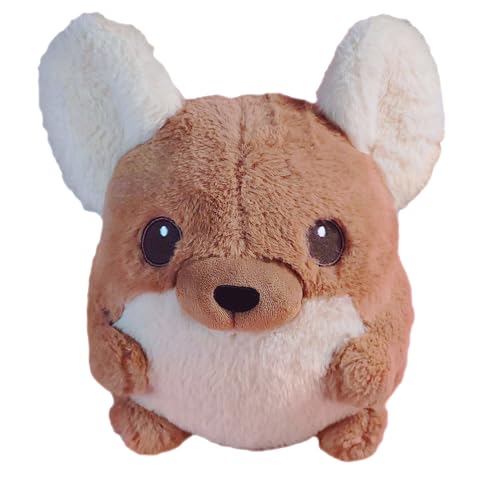Caramiamine, please let me give you my perspective as someone who is considering breeding, and just trying to learn as much as possible at the moment. Chins are not the same as cats and dogs (actually, I largely disagree with what you are saying about cats, many pedigree cat breeds are very robust and long-lived. Responsible dog breeders are also more careful than you are suggesting). In talking to chin breeders, I have been extremely impressed with how much they care for the health of their animals, and how proactive they are about reducing the occurrence of malo as much as possible - I have found chin breeders as a group tend to be more conscientious in this regard than the breeders of certain other types of animals. Anyone who will pull a line they have worked hard to develop from breeding due to maloclussion must care very much about breeding healthy animals. I've had three rabbits with malo, and it is terrible, it is horrible, and utterly heartbreaking. I could never take risks with it, and I think if you had experienced it, you would understand why. Your vet cannot tell you if your chins will develop malo, so a (at least five generation) pedigree isn't just a pretty piece of paper, it tells you if your animals are from good lines, bred by people who care about health. There are never any guarantees, so it is better to take as few risks as possible.
I've also found chin breeders are extremely careful about how they use line breeding in their herds, and many will not inbreed - these practices I think occur more with dogs. Here in the UK we have many breeders who will import chins (at great expense), which also helps to keep our lines genetically diverse.
There are plenty of reasons to go to shows even if you don't currently have any chins to enter, it's a great opportunity to talk to experienced breeders, not just to learn about showing, but to learn about good husbandry practices and health. Chin societies' newsletters also include husbandry articles, not just information on showing and results. I feel you should still be aware of show qualities though, it doesn't matter if you just want to hobby breed. I'm personally not so fond of the extremely 'brevi-type' head sometimes seen in show chins, as I prefer them to be a little more moderate, with a slightly longer nose, and bigger eyes, but that doesn't mean I think I can decide for myself what to breed for, with no reference to the qualities breeders have worked hard to develop. The chinchilla's dense, plush coat is one of the most distinctive features of the species, so of course breeders selectively breed for strong, silky fur and density, why wouldn't you want to preserve and develop that quality? It's important when it comes to finding homes for babies, too, pet owners want a nice looking animal. I know from my own chin's breeder that it can be very difficult to find suitable homes for chins, and he is an experienced breeder who breeds to show standards, and for health and temperament. If I am going to buy a chin, I will go to someone like this, not someone who doesn't know the background of their animals. The chin's health aside, as it isn't easy to find good homes, why would you want to deprive yourself of those advantages when trying to sell chins, as there are already no shortage of good and not so good quality chins available? You don't want your babies to go to someone who will not care for them correctly, right?
I feel there is a lot one should know before breeding, I never want to be in a situation I do not know how to handle purely because I didn't spend the time to learn enough. I cannot know everything, nor gain years of experience overnight, so the best thing to do is learn from the people who do have that experience, and ask questions when needed. To do otherwise would be a failure of responsibility to the animals. Please consider this.


























![Evergreen Pet Supplies [16 Cups] Small Pets & Bunny Stacking Cups – for Rabbits & Chinchillas - Guinea Pig - Colorful Wheat Straw Rabbit - Graduated Sized Stackable for Rabbits](https://m.media-amazon.com/images/I/51v+rnxcu+L._SL500_.jpg)




















